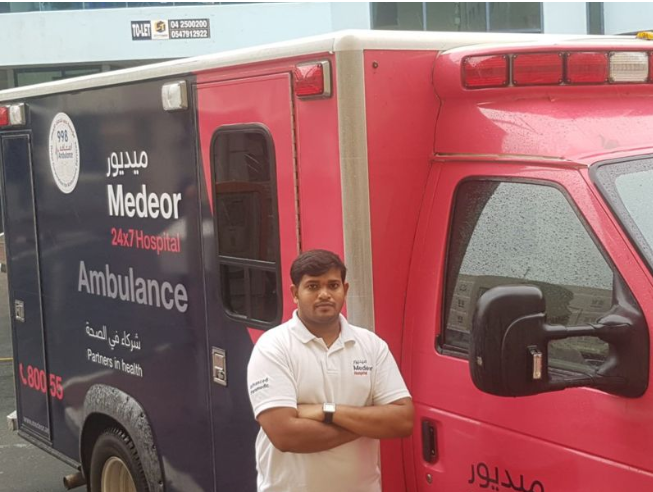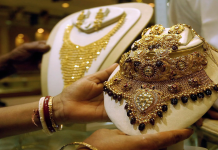Health workers tackling the pandemic share their daily routines and experiences
Dubai: The UAE’s health care frontliners have been thrust into the centre stage with a recent video on twitter posted by His Highness Sheikh Mohammed Bin Rashid Al Maktoum, Vice President and Prime Minister of the UAE and Ruler of Dubai, describing them as the new star players and MVPs that we can all cheer for as one in light of sports event cancellations.
Working with tireless grace and dedication they put in 14-17 hour shifts and are often unable to meet their own families, yet they continue to remain upbeat for their patients.
Gulf News spoke to these healthcare heroes to get their thoughts and stories to pay tribute to their efforts…
‘In this crisis, I have to contribute to the best of my abilities’
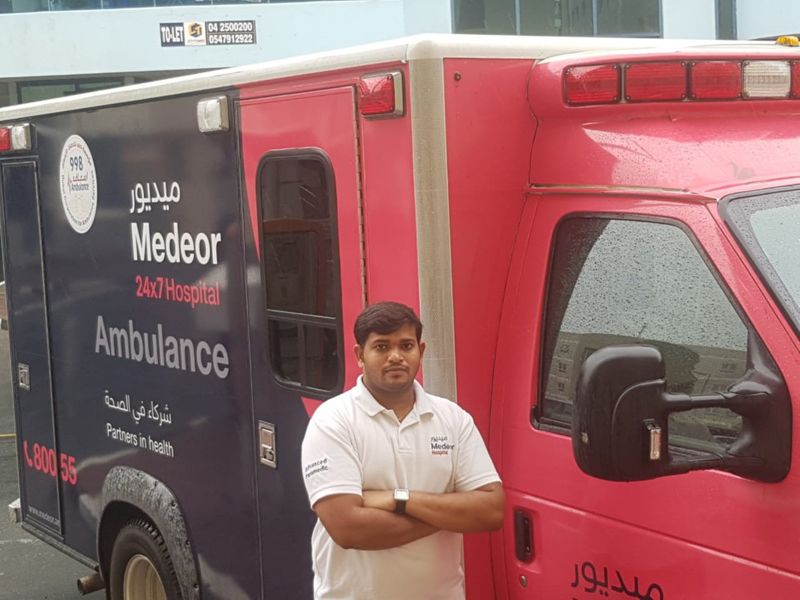
Nandkishore Nakka, a paramedic with Medeor Hospital and Dubai Health Authority, originally from India, has been assigned 12-hour shifts from 1pm to 1am working four days with three days off.
“Our schedule extends much beyond that and spills over to other days too where I am assigned to various DHA isolation centres,” said the married father of one. “I haven’t informed my family about my job as they would panic a lot and it would make things difficult for me.”
When he goes to pick up a suspected COVID-19 patient he has to wear complete Personal Protective Equipment with face shield and four layers of gloves.
“I have to be very careful as if I touch the patient I cannot touch another surface with the same gloves and have to discard them.
“When we get the patient, we have to switch off air-conditioning in the ambulance and start the exhaust to throw out harmful air that might contaminate the confined space. This is fine now, but can you imagine in the summer with layers of PPE without AC, hot challenging this will be?
For each patient he logs their vitals and prepares notes including test dates before arrival to hospital.
“This is just for one patient,” he said. “Once we drop them off we have to discard all PPE, change, sanitise and get ready for the next call. I do at least 6-7 cases a day, so have to change that many times. It is very tiring but I feel this is a crisis situation and I must contribute to the best of my abilities otherwise what use is my diploma? Sometimes I fear contracting the disease but I push these thoughts aside as there is no room for thinking about one’s self first.”
‘The smile on the face of a patient when he tests negative is priceless’
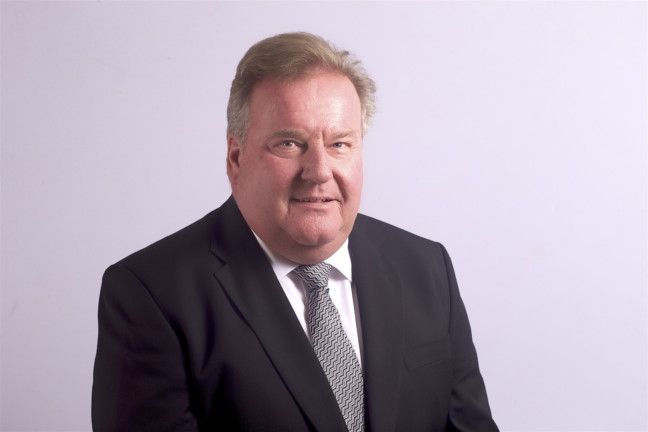
Dr Gwynne Howell, (OBE), a consultant orthopaedic surgeon and medical officer in charge of King’s College Hospital London’s Dubai Covid-19 Isolation Facility, is a British national handling a 192-bed isolation unit at an undisclosed hotel in Dubai.
In his mid-60s, Howell is an armed forces veteran who only came to the UAE 16 months ago along with his wife Dr Maria Lopez, who is a consultant anaesthetist. While Dr Lopez has a gruelling schedule at Dubai Hills Hospital, Dr Howell continues to run an isolation facility managing over 130 patients each day. When they first to Dubai they never dreamt of being called into emergency work during a pandemic, but they are answering their call of duty.
“As an armed forces personnel, I have been in several conflicts, and the most draining thing is to wait for the actual conflict to begin.
“Right now we have about 132 patients in isolation with eight doctors attending, as per DHA guidelines. We have colour coded zones in red for high risk and green for those who are not so high. Most of these are asymptomatic patients who have tested positive and are sent to here from our Dubai Hills hospital. We treat them, administer medicines and conduct tests after 14 days. If we get two consecutive tests negative, they are sent home for yet another 14-day home quarantine,” said Howell, who is working 150 hours a week.
“All of us are putting in these many hours and it is to the credit of the entire team of doctors, nurses, lab technicians, administration and other healthcare staff that I am able to run this unit. Needless to say, we don our full PPE to tend to these patients, yes it is exhausting, we are tired and drained, and the influx of patients is relentless, but as professionals we feel we have got to run this facility as the risk factor for infections is really high. The entire team is just doing its job to the best of its ability. In the end there is nothing better than telling a patient that he has tested negative. That smile on their faces when this news is broken is priceless.”
‘I haven’t been able to hug my kids, esepcially my one year old infant for a month now’
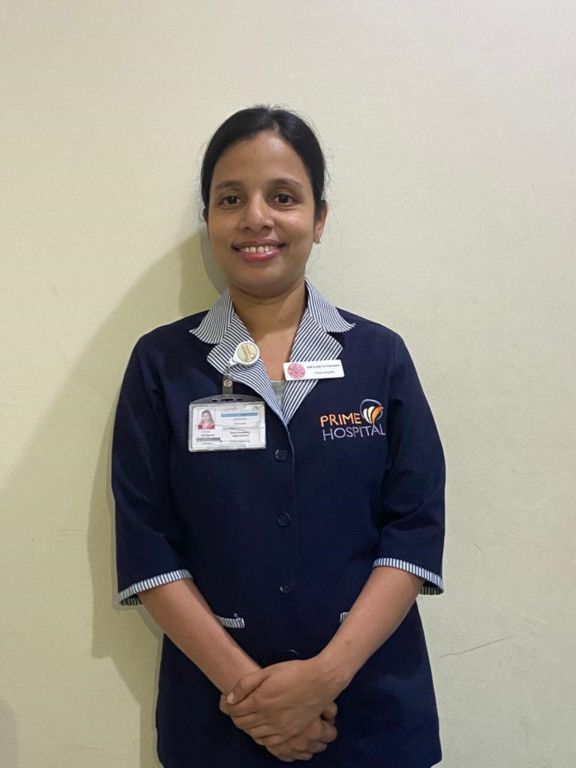
Swapna Devassykutty, 31, is an Intensive Care Unit (ICU) nurse, at Prime Hospital. The mother of three from India sweeps aside fatigue, negativity and stress to attend to patients with care, positivity and smiles.
“Many of them are intubated on mechanical ventilation and require 24 hour care,” she said. “They call for us, sometimes, they just want some water or food or even see a kind face as it is tough for them,” she added.
“We have 10 patients in ICU under ventilation, while about 50 others are in a special ward for COVID-19 patients. The entire floor is negative pressure so no contaminated air can go outside; we usually have one nurse per patient to avoid the hassle of changing protective gear. But sometimes we simply have to handle more cases and change our PPE suits from patient to patient and keep our smile intact.”
She returns home late in the evening.
“It is challenging for my three kids, aged 10, 6 and one, as I return home after 12-14 hours, but they know when I ring the door bell, they cannot run to greet and hug me, but scatter away. I change my ICU scrubs and discard my PPEs at the hazardous bin in the hospital. But once I reach home, I first take off my shoes and place them in a bag, before entering. We are not allowed to carry any pocket articles like pens, watches, notebooks, to minimise infection sources. Then I head straight for the washroom, take a bath, clean and disinfect my clothes and shoes and keep them in a segregated space from the family.
“I cannot hug my child and hold her as I keep to social distancing at home. When the pandemic broke out and patients began coming, I never once felt the need to back-out for the sake off my children. I have been an ICU nurse for 15 years and I understood I would have to step up and be there for the patients. I hope when my children grow up and look back, they will understand why I continued to be there at the ICU each day.”
‘It’s tiring but I am not giving up’
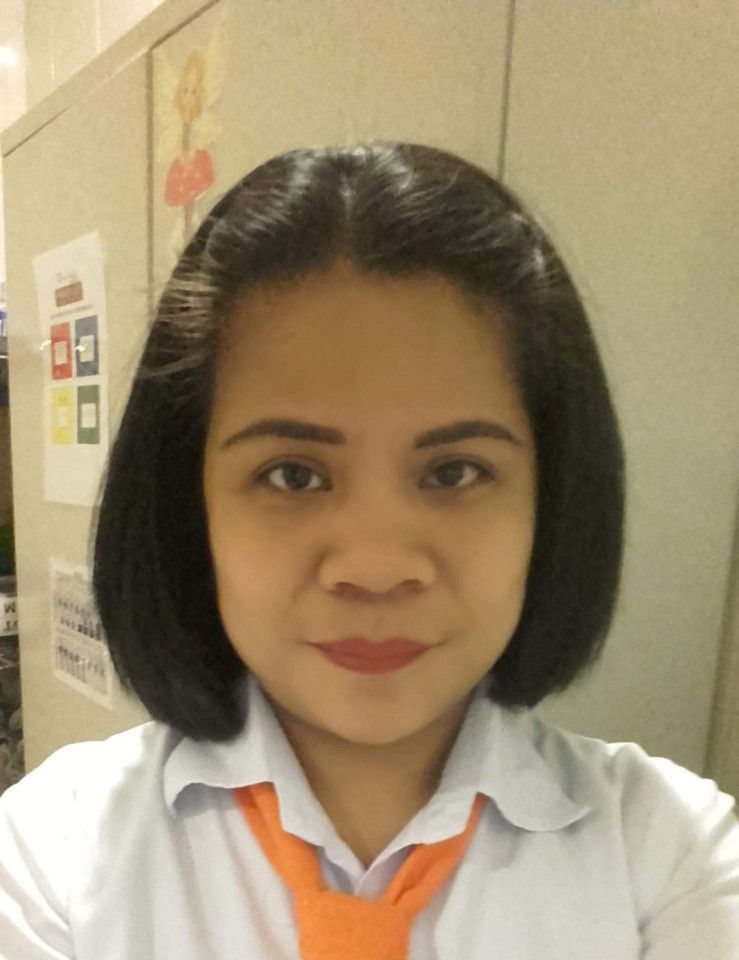
Mary Grace Rebater, 40, is housekeeper for Burjeel Hospital in Abu Dhabi. Originally from Phillipines, Mary is in charge of cleaning and sanitising the COVID-19 isolation ward.
“I follow the complete medical protocol and enter the room wearing complete PPE. Every day, I have to clean and disinfect the rooms, the main entrance to the ward, and the elevators leading to the floor,” she said.
Rebater said her cleaning covers every aspect of the room from floor to ceiling.
“I do wall to wall cleaning, sanitising everything including the light fixtures, the curtains, the tables, chairs, beds. First I do the dusting and vacuum, followed by deep cleaning and sanitisation. It is tiring and I am scared, but this is the new protocol we have to follow,” said Rebater who feels very hot and confinded in her PPE suit when she has to clean and scrub.
“Besides that, every two hours we have to change the PPE and I change at least four times in a day,” After putting in over 14 hours of duty, Rebater has to go home and rustle up a dinner for herself. “It’s back breaking and returning home to cook a meal is equally tiring. When I am too exhausted, I order from outside. The times are tough and there is no way out other than fighting with the infection by making sure this effort of cleaning and sanitising doesn’t go to waste. This seems relentless, but I am doing my part too,” she said.
‘I haven’t visited my family here in Dubai, for a month’
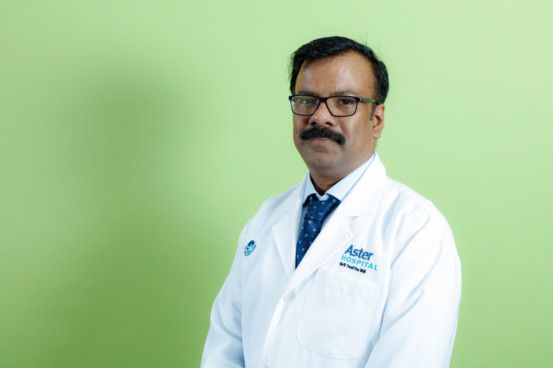
Dr Vikas Bhagat, 40, an Indian national in charge of the Intensive Care Unit at Aster Hospital hasn’t been home for the past month and instead stays in accommodation near the hospital.
“I have been through the H1NI epidemic handling cases in India and have had exposures to dealing with the spread of a contagion before, but what is happening now is unprecedented,” he said. “These days our duty hours extend from 12 to even 17 hours a day. I am too exhausted to go home. I have my aged mother living with us along with my wife and two kids. I cannot put their lives at risk as they are the real heroes bearing the brunt of my work.”
Dr Bhagat speaks to his family every day on video calling.
“My 10-year old girl understands the situation and is very proud of my work, but my one and a half year-old son cries for me. This pandemic has turned our lives upside down. We are all very stressed and it is tough being in PPE for 12-14 hours each day.
“I get drenched doing the rounds in the morning which takes me over four hours to just examine 12-13 patients. My staff are so stressed that I just set aside time to give them a patient hearing and listen to their personal problems and we try and provide high protein diet rich in fruits and vegetables to all the nurses dealing with this crisis right now. The entire staff working in this ward has gone above and beyond the call of duty and we know we have to give our very best. But my request to the people is to maintain social distancing and respect stay at home protocols as this is the only way to break the chain and bring the pandemic under control,” he said.
‘I want to make a difference to the lives of others’
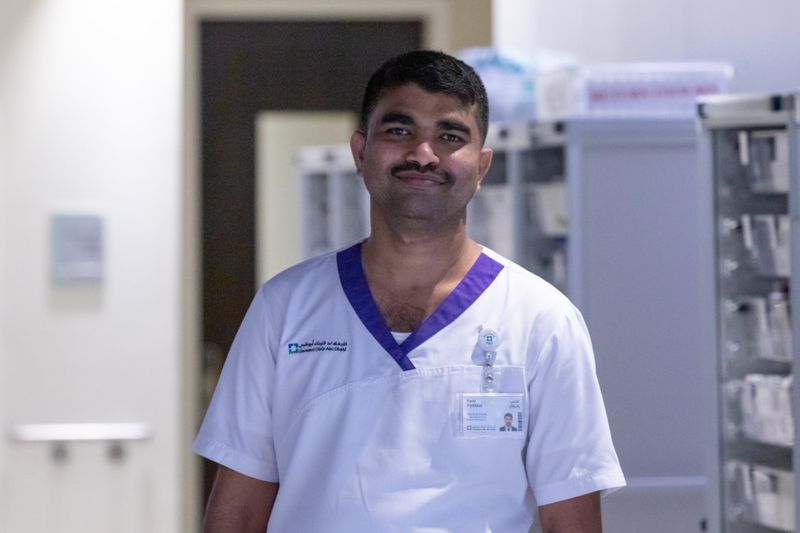
Faris Pallikkal, 33, a male nurse from the surgical unit of the Cleveland Clinic Abu Dhabi (CCAD), was felicitated as a hero by the hospital.
When people were still coming to terms with the severity of the pandemic, Pallikkal, from India was the first to volunteer to accompany Arab patients evacuated from China by the UAE government and transport them to the isolation centre at Humanitarian City on March 9.
He also accompanied 14 patients in a bus where he and the driver were the only two non suspected-COVID 19 personnel.
“When my seniors were asking who will volunteer, I came forward.
“My job was to transport these patients from CCAD to Humanitarian City attired in complete PPE gear.
“For the next four hours, I had to take care of their needs,” said Pallikal, who added, “My family was scared but I think as nurses it is our duty to offer our services in such a time of crisis. I continue to work with 33 COVID-19 patients at CCAD. We take care of our safety as well. We have an entire negative pressure floor. After the end of duty, we have facilities to shower, change and go home. Once back home to my family, I shower and change again, discard and disinfect all the clothes, before I meet my wife and children. I feel this is my opportunity to use my skills as a trained surgical nurse to make a difference in the lives of others.”

